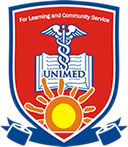|

Established December 8 2014
For Learning and Community Service
|
INTRODUCTION
Until recently, Ondo State was noted by the World Bank to have the worst healthcare indices in South-West, Nigeria. One woman died every 16 minutes during childbirth and one in 10 children died before one year of age. His Excellency, the Governor of Ondo State, Dr. Olusegun Mimiko on assumption of office in February, 2009 decided to reverse this alarming and unacceptably high trend in rates of maternal and child mortality in the State. In particular, the government identified the lack of access to quality health care as the major issue that need to be addressed to improve various indicators of health in the state. At that time, Ondo State was the only State that did not have federal presence in terms of quality tertiary health care services. To address these myriad of problems and also to achieve the Millennium Development Goals 4 and 5, the Ondo State government under Dr. Olusegun Mimiko set up the Mother and Child Hospitals (MCH) at Akure and Ondo to provide quality free health services for pregnant women and children up to five years of age. Thus, with the Abiye (Safe Motherhood) project and the Mother and Child Hospital, Healthcare delivery in the State was turned around.
One major challenge facing the Nigerian health sector has been intense inter-professional rivalry among the different professionals, leading to frequent strikes and lock-outs. This is now believed to be due to the silo-ed nature of training of health professionals, where each profession develops and applies its training separately, without an attempt to cross fertilize training modules between the different health professions. It is now considered that an integrated approach that brings the training of health professional under one philosophy and strategic vision will largely enable health professionals to focus on the core mission of providing services for the attainment of good health. Through its collaborative approach to program development, planning and implementation, UNIMED will be designed to integrate the training of health professionals, producing graduates that see the health profession as an integral part rather than as antagonistic parts. This indeed, will be a major innovative contribution to human resource development and the fostering of inter-professional harmony in the Nigerian health sector.
In sum, UNIMED will be a major tertiary institution in Nigeria that would correct the deficiencies in human resource development for health in Nigeria. It will set a good example for our educational and health care systems to attain the best outcomes and successes comparable to those in more developed parts of the world. The project would be a major legacy of the government and people of Ondo State and a crucial sustainable contribution to social change on youth development and knowledge transfer on health in the region.
|

